Find Help
More Items From Ergsy search
-
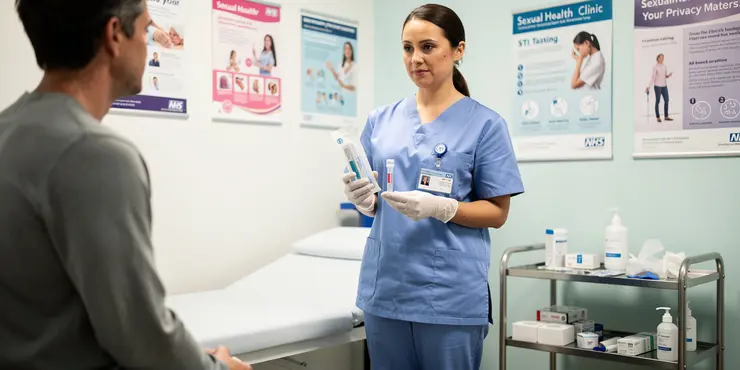
Rectal swab test for Gonorrhoea and Chlamydia
Relevance: 100%
-
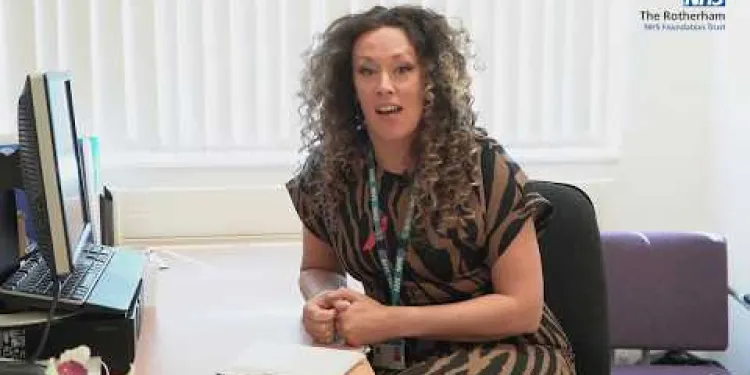
Vaginal Swab test for Gonorrhoea and Chlamydia
Relevance: 77%
-
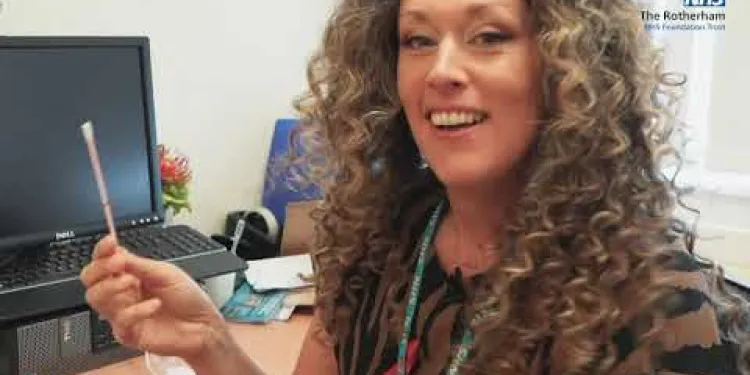
Pharyngeal swab for Gonorrhoea and Chlamydia
Relevance: 74%
-
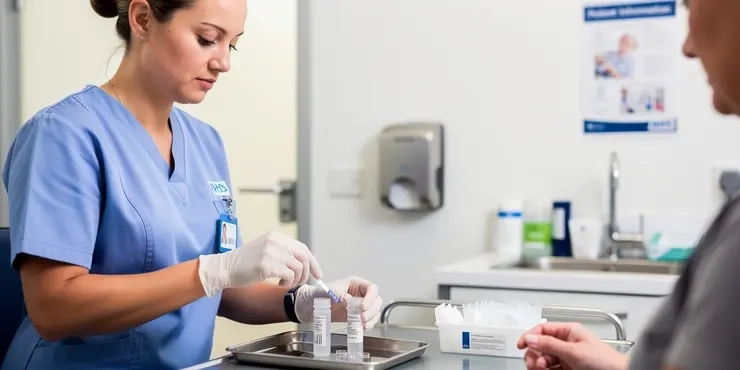
Urine test for Gonorrhoea and Chlamydia
Relevance: 60%
-
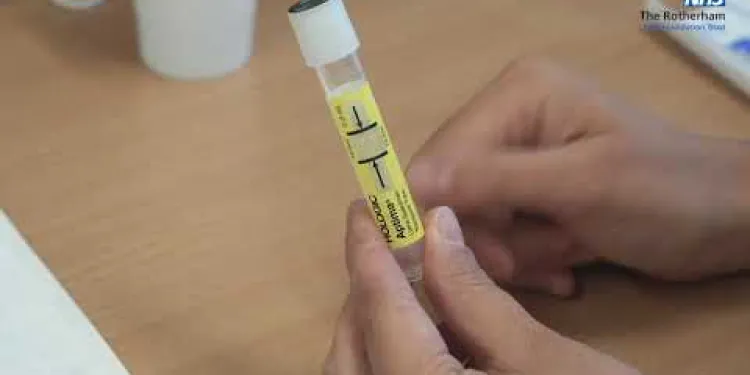
Urine test for Gonorrhoea and Chlamydia
Relevance: 57%
-
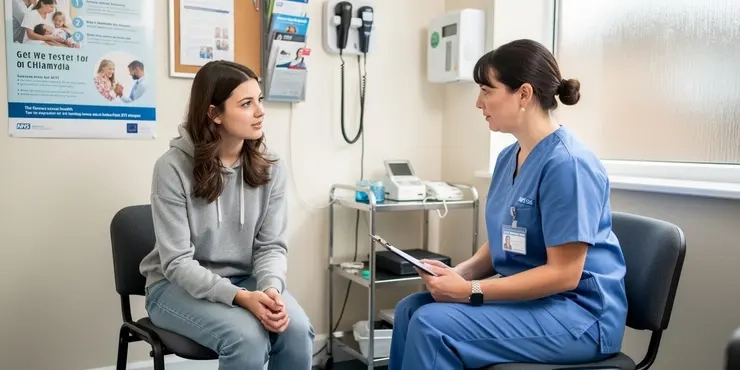
Getting tested for Chlamydia
Relevance: 44%
-
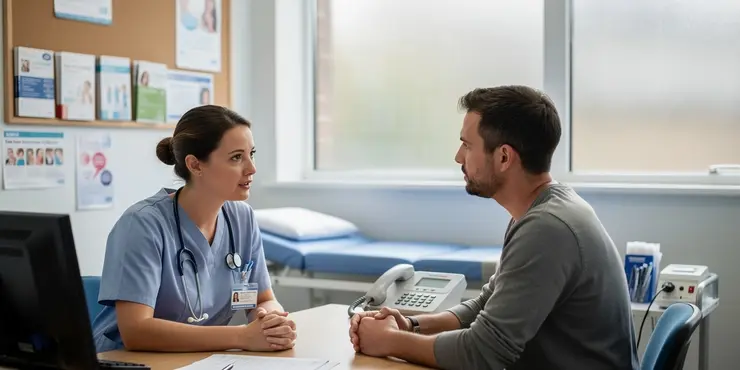
How is gonorrhoea diagnosed?
Relevance: 40%
-
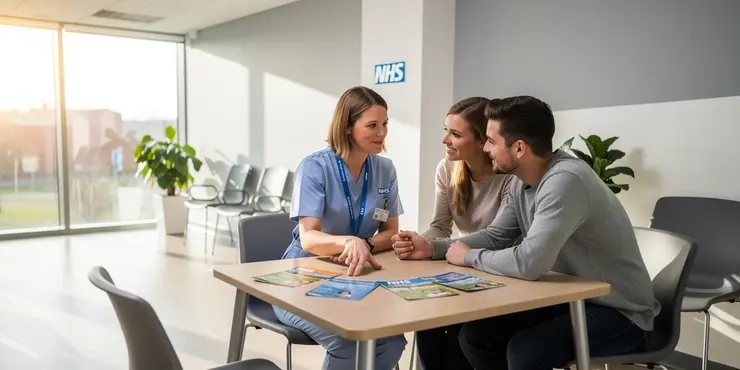
NHS - Chlamydia
Relevance: 38%
-

Understanding Your Sexual Health - Gonorrhoea
Relevance: 36%
-
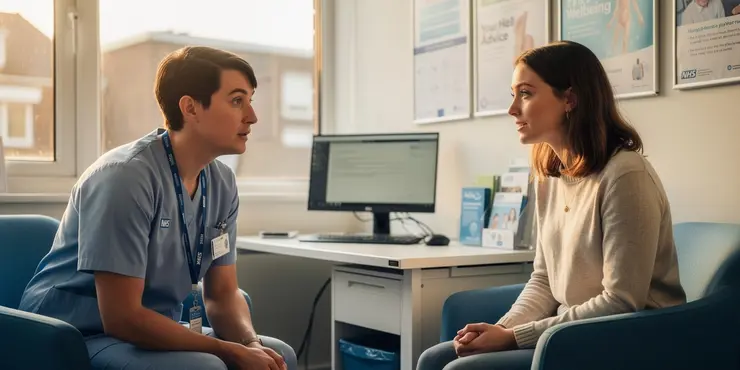
What is chlamydia?
Relevance: 36%
-
Chlamydia: The Silent Threat
Relevance: 34%
-
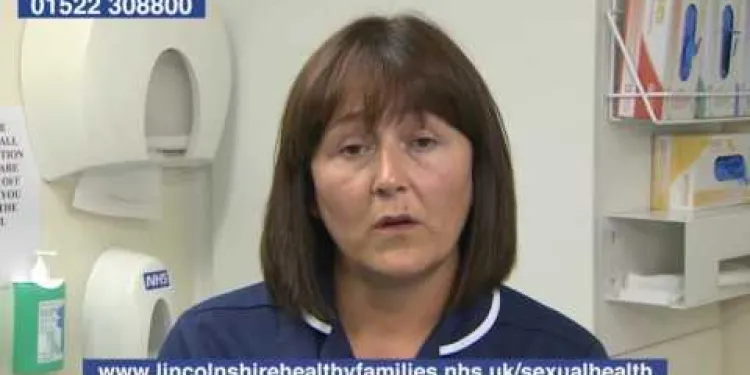
The symptoms of gonorrhoea
Relevance: 33%
-
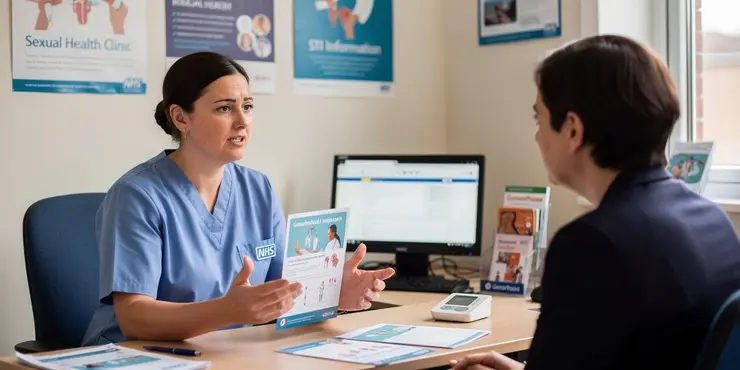
What is Gonorrhoea?
Relevance: 32%
-
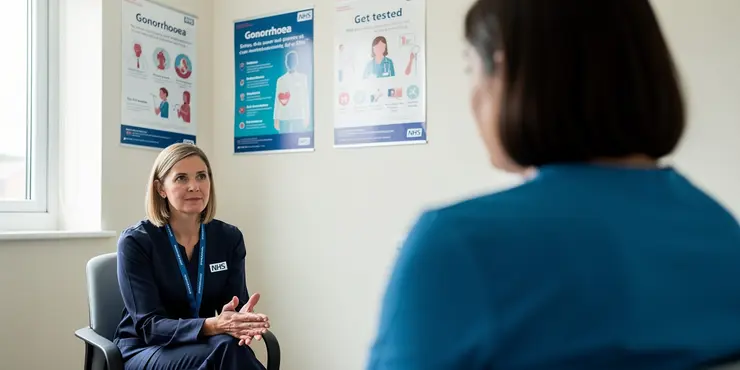
Can gonorrhoea be asymptomatic?
Relevance: 31%
-
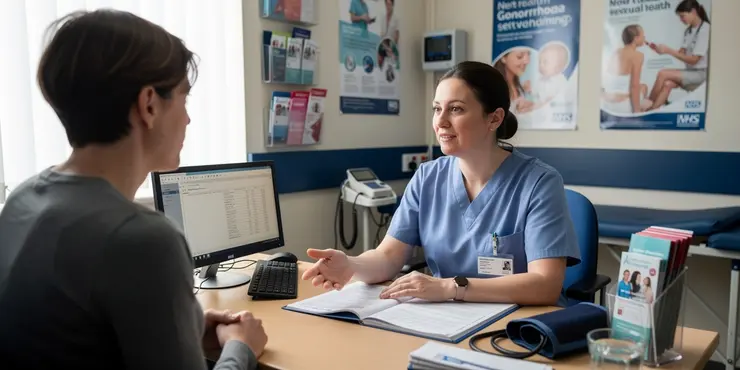
How often should one get tested for gonorrhoea?
Relevance: 30%
-
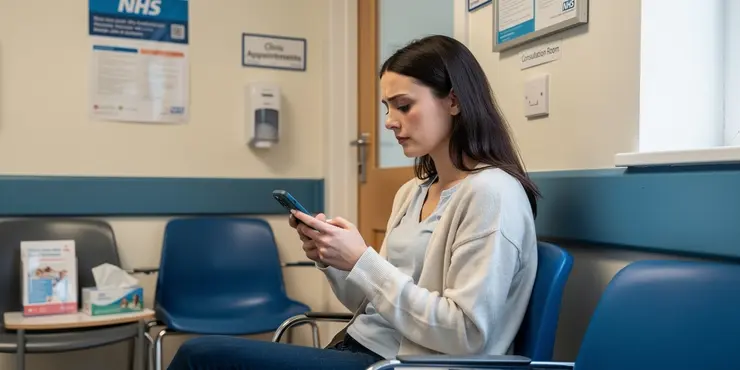
What should one do if they suspect they have gonorrhoea?
Relevance: 29%
-
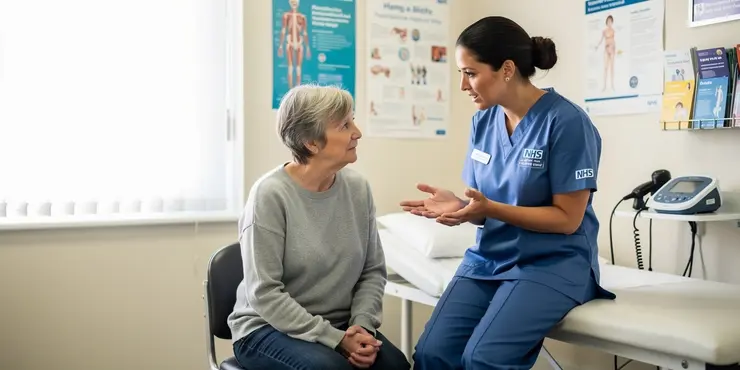
Can gonorrhoea infect areas other than the genital organs?
Relevance: 29%
-

How is gonorrhoea transmitted?
Relevance: 27%
-
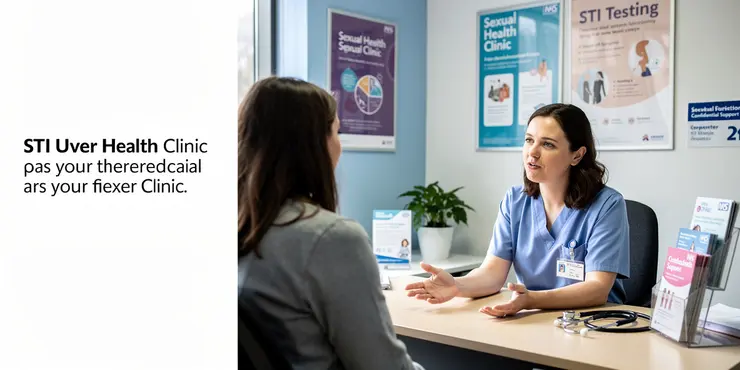
Can gonorrhoea be prevented?
Relevance: 27%
-
Bleeding from the bottom rectal bleeding
Relevance: 25%
-
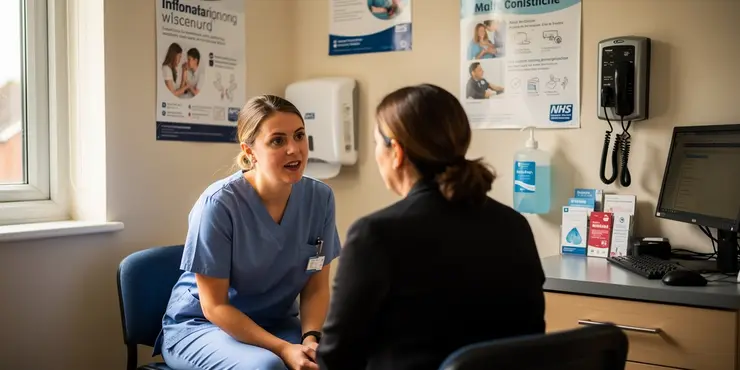
Is there a vaccine for gonorrhoea?
Relevance: 24%
-
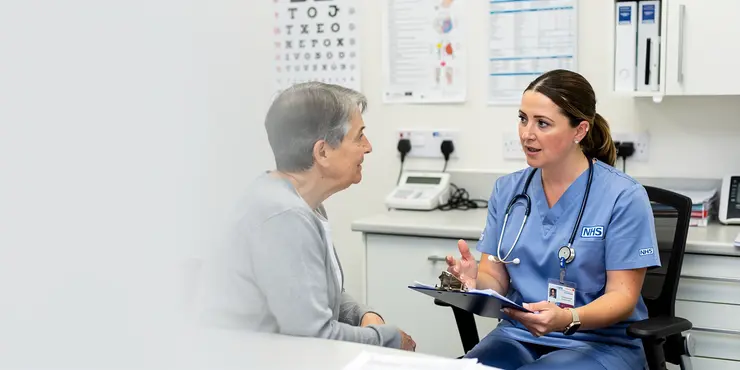
What antibiotics are used to treat gonorrhoea?
Relevance: 24%
-
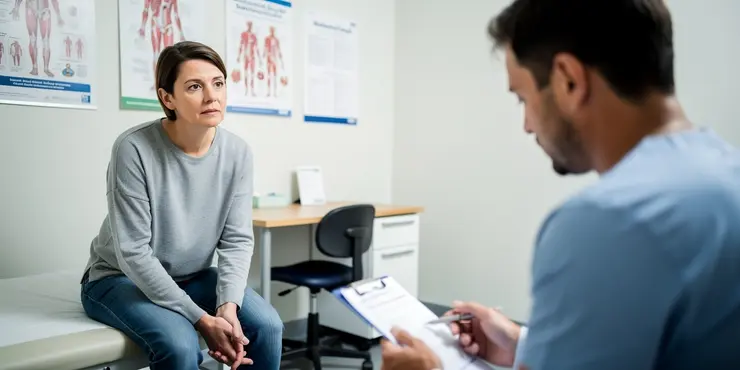
Bleeding from the bottom rectal bleeding
Relevance: 23%
-
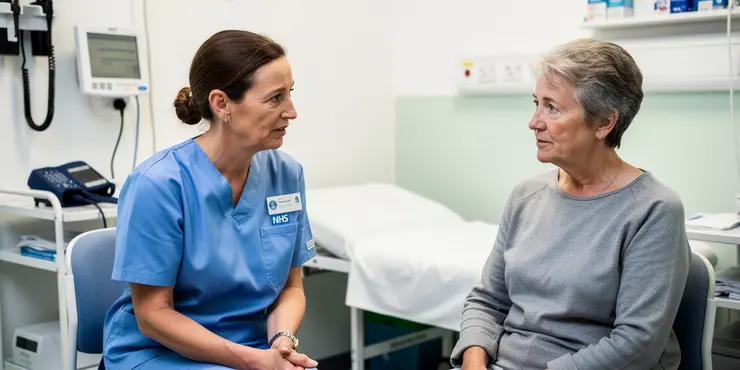
Can you still get gonorrhoea after treatment?
Relevance: 23%
-
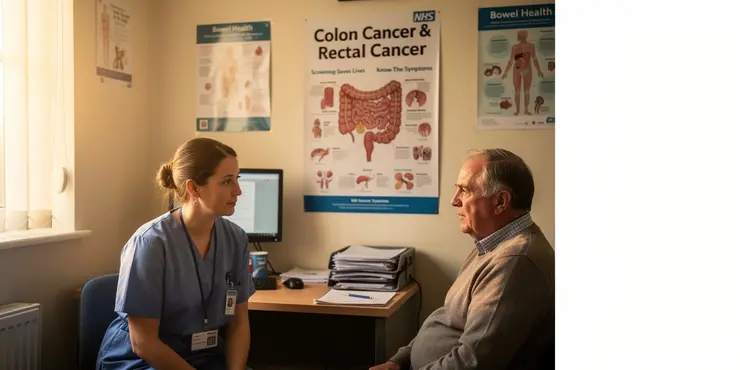
What is the difference between colon cancer and rectal cancer?
Relevance: 23%
-
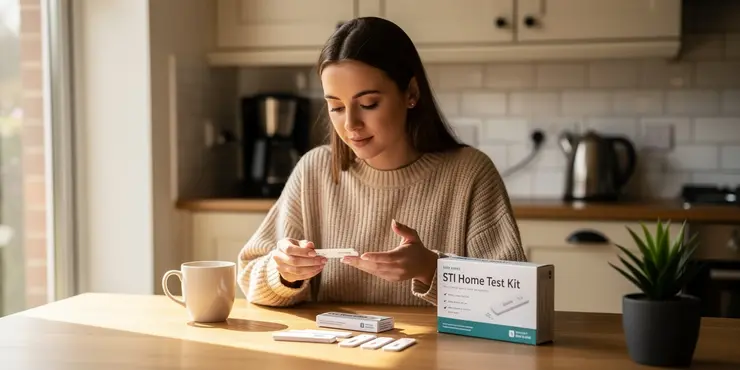
Let's Talk Sexual Health - Home Self Testing Kits
Relevance: 23%
-
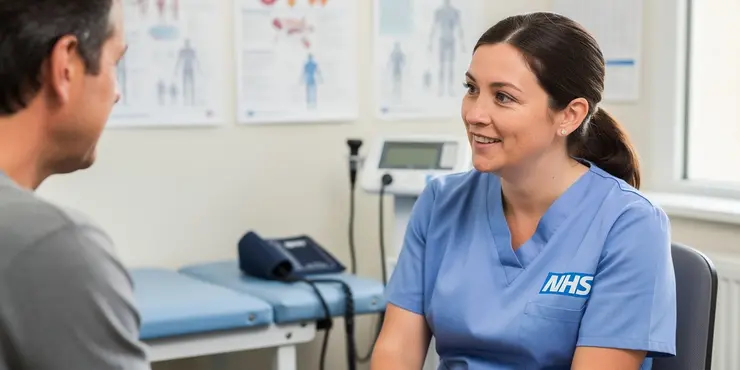
Why is antibiotic resistance a concern with gonorrhoea?
Relevance: 23%
-
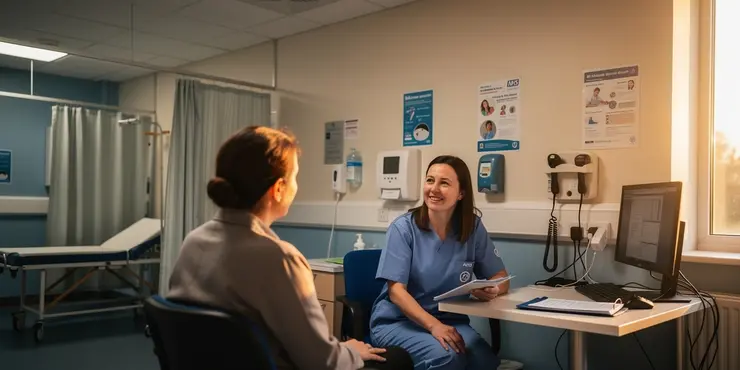
Are there any long-term effects of gonorrhoea?
Relevance: 23%
-
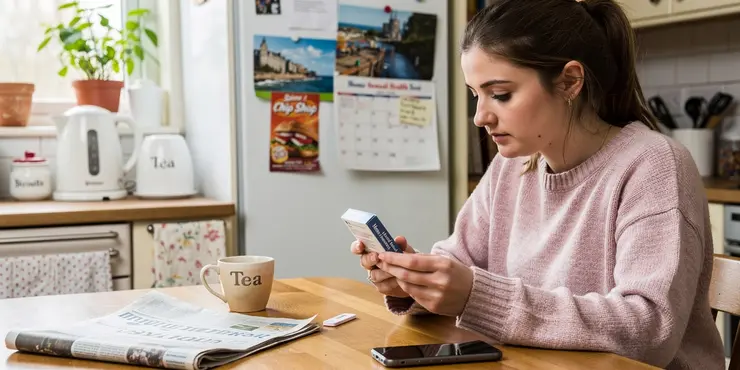
Let's Talk Sexual Health - Home Self Testing Kits
Relevance: 22%
-
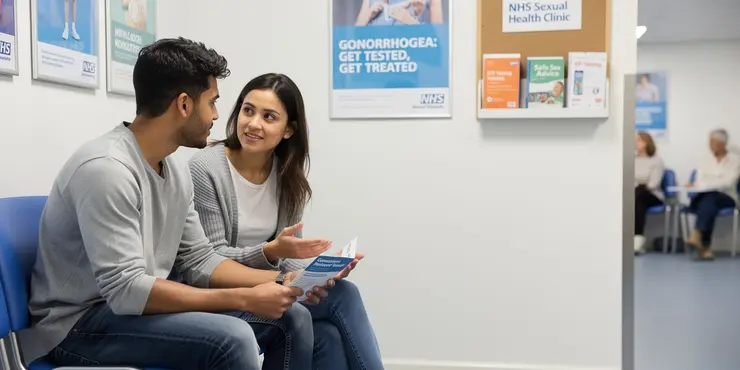
Can gonorrhoea be spread through casual contact?
Relevance: 19%
-
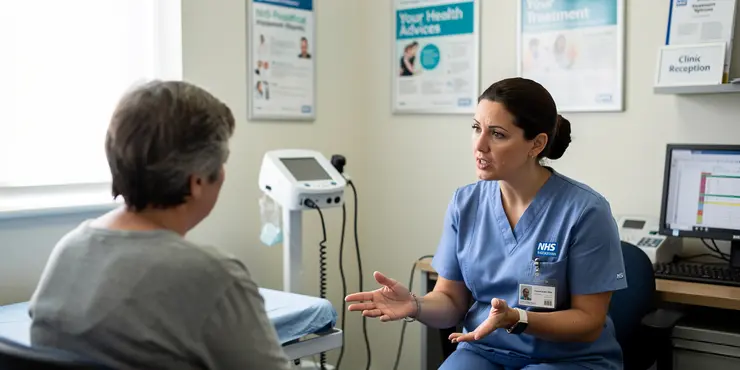
Is gonorrhoea treatable?
Relevance: 19%
-
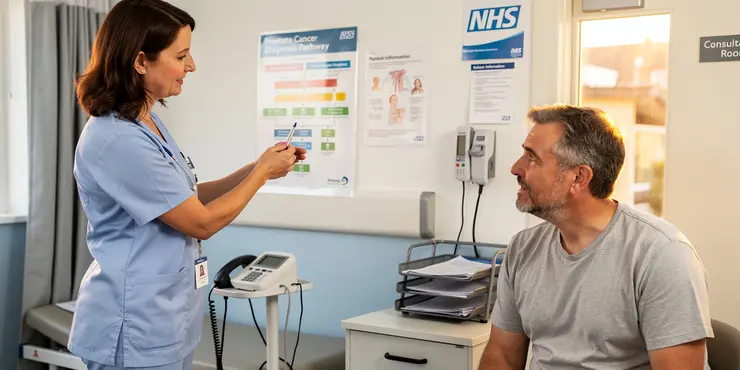
Prostate cancer diagnosis and tests
Relevance: 19%
-
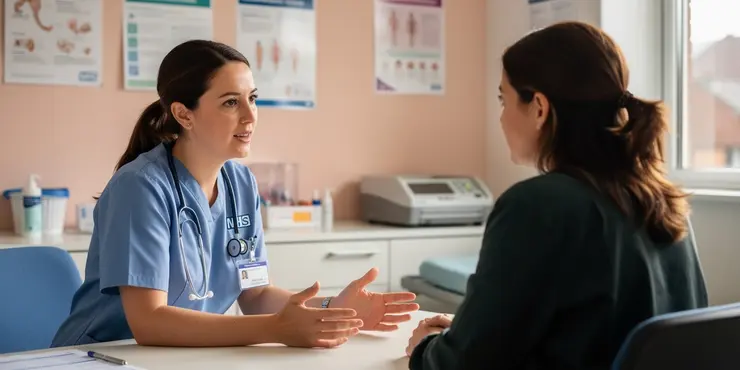
Sexually transmitted infections STIs
Relevance: 18%
-
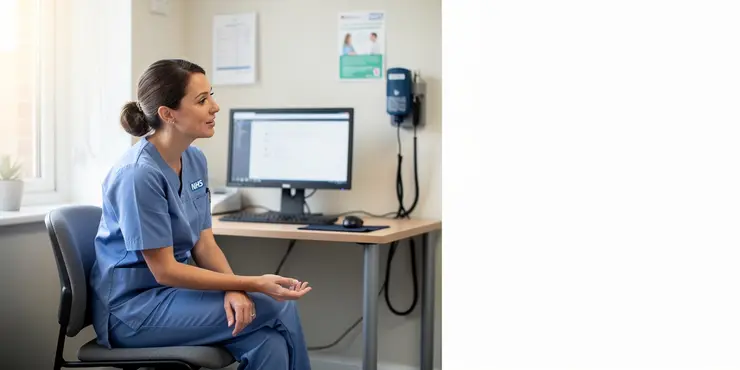
What is 'the clap'?
Relevance: 17%
-
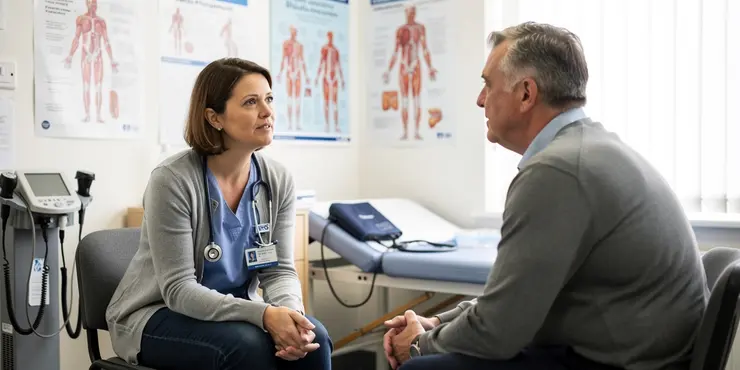
What is PSA testing?
Relevance: 16%
-
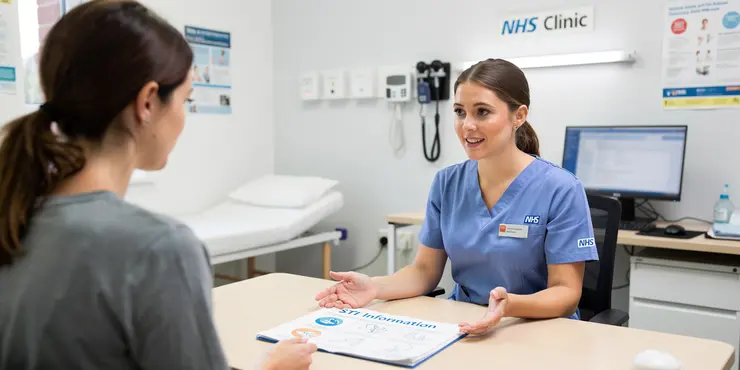
NHS STI (Sexually Transmitted Infections) Information Video
Relevance: 16%
-
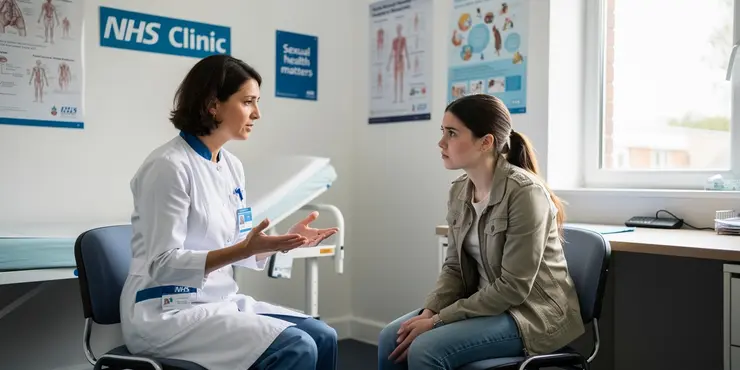
Can gonorrhoea cause complications if left untreated?
Relevance: 15%
-

Sexual Health - HIV Testing
Relevance: 14%
-
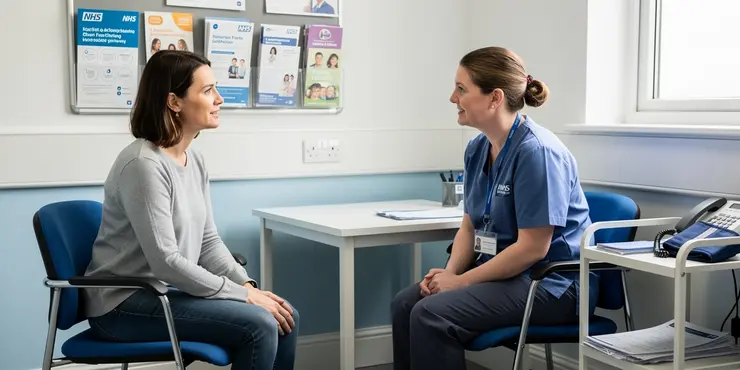
Understanding Your Sexual Health - Pelvic Inflammatory Disease
Relevance: 14%
-
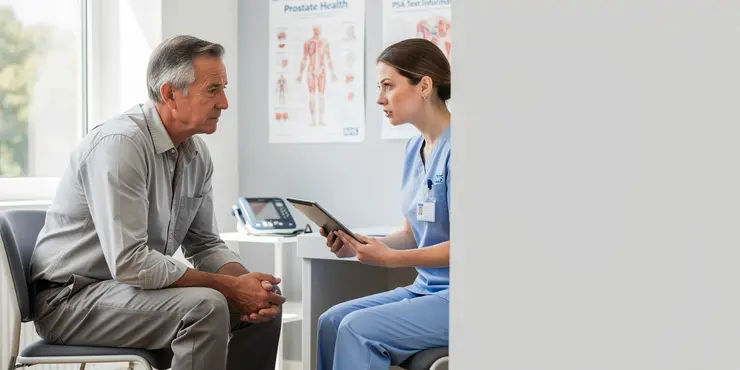
Prostate Specific Antigen (PSA) test
Relevance: 12%
Rectal Swab Test for Gonorrhoea and Chlamydia
What is a Rectal Swab Test?
A rectal swab test is a diagnostic procedure used to detect sexually transmitted infections (STIs) such as gonorrhoea and chlamydia in the rectum. This test involves using a small, sterile swab to collect a mucus sample from the lining of the rectum. The sample is then sent to a laboratory for analysis. This type of test is essential for individuals who engage in receptive anal sex, as infections in the rectum can often be asymptomatic, meaning there may be no noticeable symptoms.Why is it Important?
Gonorrhoea and chlamydia are common STIs that can lead to serious health complications if left untreated. These include long-term pain, infertility, and a higher risk of contracting other STIs, including HIV. Early detection through a rectal swab test allows for prompt treatment, which can prevent these complications. It also helps in stopping the spread of the infection to partners. In the UK, Sexual Health Clinics (GUM clinics) provide this test, and it can also be conducted by your GP or other healthcare providers.How is the Test Performed?
The rectal swab test is a quick and simple procedure. You will be asked to undress from the waist down and lie on your side with your knees pulled up to your chest. A healthcare professional will gently insert the swab into your rectum to collect the sample. The process typically takes only a few minutes and may cause slight discomfort but is usually not painful. After the swab is collected, it is placed in a sterile container and sent for laboratory testing.Receiving Your Results
Results from a rectal swab test are usually available within a few days to a week. If the test is positive for gonorrhoea or chlamydia, your healthcare provider will discuss treatment options with you. Both infections are treatable with antibiotics. Follow-up testing may be recommended to ensure the infection has been completely cleared.Where to Get Tested
In the UK, rectal swab tests for gonorrhoea and chlamydia can be accessed through NHS Sexual Health Clinics, GPs, and various private healthcare providers. Many services offer confidential and free testing. You can find the nearest clinic by using online resources, such as the NHS website.Rectal Swab Test for Gonorrhoea and Chlamydia
What is a Rectal Swab Test?
A rectal swab test checks for STIs (infections you can get from sex) like gonorrhoea and chlamydia in your bottom. The doctor or nurse uses a small cotton stick to take a sample of mucus from inside your bottom. This is sent to a lab to look for infection. This test is important if you have anal sex because you might have an infection without feeling sick.Why is it Important?
Gonorrhoea and chlamydia are common infections you can get from sex. If you don't treat them, they can cause big problems. These can include pain, not being able to have babies later, and getting more serious infections like HIV. The test helps find the infection early, so you can get medicine to get better. It also stops the infection from spreading to others. In the UK, you can get this test at Sexual Health Clinics or from your regular doctor.How is the Test Performed?
The rectal swab test is quick and easy. You will take off your clothes from the waist down and lie on your side. You will pull your knees up to your chest. A doctor or nurse puts the swab inside your bottom to get a sample. This only takes a few minutes. It might feel a little uncomfortable, but it shouldn't hurt. Once the doctor takes the sample, it's sent to a lab to be tested.Receiving Your Results
You usually get your results in a few days to a week. If the test shows you have gonorrhoea or chlamydia, your doctor will talk about what medicine you need. Both infections can be treated with medicine called antibiotics. You might need another test later to make sure the infection is gone.Where to Get Tested
In the UK, you can get a rectal swab test for gonorrhoea and chlamydia at NHS Sexual Health Clinics, with your regular doctor, or from private health services. Many places offer this test for free and keep your information private. You can find a clinic near you by looking on the NHS website.Frequently Asked Questions
What is a rectal swab test for Gonorrhoea and Chlamydia?
A rectal swab test for Gonorrhoea and Chlamydia involves collecting a sample of cells and mucus from the rectum using a swab. The sample is then tested in a laboratory to detect the presence of Gonorrhoea and Chlamydia bacteria.
Why would I need a rectal swab test for Gonorrhoea and Chlamydia?
You may need a rectal swab test if you've had unprotected anal sex or have symptoms such as rectal pain, bleeding, or discharge, indicating a possible infection.
How is the rectal swab test performed?
A healthcare professional will insert a sterile swab into your rectum to collect a sample. The procedure is quick and may cause slight discomfort but is generally not painful.
Is the rectal swab test for Gonorrhoea and Chlamydia accurate?
Yes, the rectal swab test is highly accurate when performed correctly. It is a reliable method for detecting infections in the rectal area.
Do I need to prepare for a rectal swab test?
Generally, no special preparation is needed. However, you should follow any specific instructions given by your healthcare provider.
Can I test myself at home with a rectal swab kit?
Yes, home testing kits for Gonorrhoea and Chlamydia are available. These kits usually come with instructions on how to collect the sample and mail it to a laboratory for analysis.
How long does it take to get results from a rectal swab test?
Results typically take a few days to a week, depending on the laboratory processing the sample.
What if my rectal swab test is positive for Gonorrhoea or Chlamydia?
If your test is positive, your healthcare provider will discuss treatment options with you. Both infections are treatable with antibiotics.
Is it possible to have Gonorrhoea or Chlamydia without symptoms?
Yes, many people with Gonorrhoea or Chlamydia do not exhibit symptoms, which is why testing is important if you've had unprotected sex.
Is it confidential to get a rectal swab test for STIs?
Yes, STI testing, including rectal swab tests, is confidential. Your results and any related discussions with your healthcare provider are private.
Can I still get tested if I am on my period?
Yes, you can still have a rectal swab test if you are on your period. It should not affect the test results.
Where can I get a rectal swab test in the UK?
You can get a rectal swab test at sexual health clinics, some GP surgeries, and through certain online health services.
Are there any risks associated with a rectal swab test?
The risks are very minimal. You may experience slight discomfort or minor bleeding from the swab, but serious complications are extremely rare.
How much does a rectal swab test cost?
STI testing is free at NHS sexual health clinics in the UK. If you choose to have the test privately, costs can vary.
How often should I get tested for Gonorrhoea and Chlamydia?
It's recommended to get tested at least once a year if you are sexually active, or more frequently if you have multiple partners or engage in high-risk sexual activities.
What is a rectal swab test for Gonorrhoea and Chlamydia?
A rectal swab test is a way to check if someone has two kinds of infections: Gonorrhoea and Chlamydia.
Doctors use a small stick with a cotton tip, called a swab. They gently put it into your bottom to collect a sample.
The sample is tested to see if there are any germs that cause these infections.
If you find it hard to understand, you can ask someone to explain it with simple words or use pictures to help you. You can also ask a nurse or doctor to tell you more.
A rectal swab test checks for Gonorrhoea and Chlamydia. A doctor or nurse uses a cotton stick to collect cells and mucus from your bottom. Then, they send the sample to a lab to see if the Gonorrhoea or Chlamydia germs are there.
If reading is hard, try using a finger to follow the words or ask someone to read it with you. Audiobooks or text-to-speech tools can help too.
Why do I need a bottom swab test for Gonorrhoea and Chlamydia?
A bottom swab test checks for germs that cause illnesses called Gonorrhoea and Chlamydia. You might need this test if:
- You have been told you might have these germs.
- You have a sore or feel itchy on your bottom.
- A doctor or nurse thinks it is a good idea to check.
If you are unsure about anything, ask someone you trust to help explain it. You can also use pictures or videos to understand better.
You might need a rectal swab test if you've had anal sex without a condom or if you have signs like pain in your bottom, bleeding, or strange fluid coming out. These could mean you have an infection.
If you find it hard to read, try using tools that read out loud or make words bigger. Get someone to help you. It's okay to ask questions if you don't understand.
How do you do a rectal swab test?
A rectal swab test is when a doctor or nurse uses a special stick to take a sample from your bottom. Here is how they do it:
- First, you get ready and lie down to be comfortable.
- The doctor or nurse will put on gloves to keep everything clean.
- They have a small stick with a soft tip called a swab.
- They gently put the swab into your bottom to get a sample.
- This won’t take long and it doesn’t hurt much.
- After they take the sample, they will remove the swab.
If you feel worried, you can tell someone how you feel. Bringing a friend or using calming music can help you relax.
A doctor or nurse will use a clean cotton stick to take a sample from your bottom. This is fast. It might feel a little uncomfortable, but it shouldn't hurt.
Is the rectal swab test for Gonorrhoea and Chlamydia correct?
The rectal swab test checks for germs that can make you sick. These germs are called Gonorrhoea and Chlamydia. It's important to find them so you can get better.
Doctors use the rectal swab test because it is good at finding these germs.
Here are ways to make it easier:
- Use simple words to describe what the test does.
- Show a picture of a doctor doing the test to help people understand.
- Ask someone you trust, like a nurse or helper, to explain it to you.
Yes, the rectal swab test works well if done the right way. It is a good way to find infections in the bottom area.
Do I need to get ready for a rectal swab test?
You don’t need to get ready in a special way. But listen to what your doctor tells you to do.
Can I use a rectal swab kit at home to test myself?
Yes, you can use a rectal swab kit at home. It is a simple kit that you can use to collect a sample from your body.
Here are some tips to help you:
- Read the instructions carefully before you start.
- Make sure your hands are clean.
- Use a mirror if it helps you see better.
- Ask someone you trust to help, if needed.
- Contact a doctor or nurse if you have questions.
Tools that can help:
- Follow a video guide if available.
- Use a timer to help you do steps for the correct amount of time.
You can get a test kit at home for two infections: Gonorrhoea and Chlamydia. These kits have simple steps to follow. You will see how to take a sample and send it to a lab.
Tools that can help:
- Ask a family member or friend to help you read the steps.
- Use a magnifying glass if the words are small.
- Take your time and don’t rush.
When will I get the results from a bottom swab test?
A bottom swab test checks for germs. You may get the results in a few days. But sometimes, it can take a week.
If you want help, you can ask someone to explain the results. Writing down questions before talking to the doctor can also help.
Results usually come in a few days to one week. It depends on the lab checking your sample.
What should I do if my bottom swab test shows I have Gonorrhoea or Chlamydia?
If your test says you have Gonorrhoea or Chlamydia, don't worry. You need to see a doctor. The doctor will give you medicine to make you better.
Here are some things that can help:
- Ask someone you trust to go with you to the doctor.
- Write down any questions you have for the doctor.
- Remember to take your medicine as the doctor tells you.
If your test says you are sick, the doctor will talk to you about how to get better. The medicine that helps is called antibiotics. It can make you well again.
If you find reading hard, you can try using a ruler or your finger to keep your place. You can also ask someone to read with you or listen to an audio version.
Can you have Gonorrhoea or Chlamydia without knowing?
Yes, you can have Gonorrhoea or Chlamydia and not feel sick. Sometimes, there are no signs. This means you might not know you have it. Here are some things that can help: - **Get Tested:** You can go to the doctor for a test. This helps you find out if you have it. - **Talk to Someone:** If you are worried, talk to a nurse, doctor, or a trusted adult. - **Use Protection:** Use a condom to stay safe. It's important to check with a doctor, even if you feel okay.Yes, lots of people who have Gonorrhoea or Chlamydia don't show signs that they are sick. This is why it is important to get tested if you have had sex without a condom.
Is it private to get a rectal swab test for STIs?
Yes, it is private. Doctors and nurses keep your information safe. This means they do not tell other people about your test. You can talk to a doctor about any worries you have.
Here are some tips for support:
- Bring a friend or family member if it makes you feel better.
- Write down questions you have before your appointment.
- Use picture or symbol aids if reading is tricky for you.
Yes, tests for STIs, like the rectal swab test, are secret. Only you and your doctor will know your results and your talks about them.
Can I have a test if I have my period?
Yes, you can get a rectal swab test when you have your period. Your period will not change the test results.
Where can I get a rectal swab test in the UK?
Do you need to take a rectal swab test? Here is how you can find a place:
1. Ask your doctor. They can tell you where to go for the test.
2. Look for a clinic near you. Use a map or ask for help to find a clinic.
3. Ask a helper. A friend or family member can help you make calls or use the internet.
Remember, it is okay to ask for help when you need it!
You can get a rectal swab test at places that help with sexual health, some doctor’s offices, and from some online health websites.
Is a rectal swab test safe?
A rectal swab test is when a doctor puts a small, soft stick into your bottom to check for germs. Most people are okay after the test.
Sometimes, it can feel a little uncomfortable. It's important to relax and breathe deeply.
If you feel pain, tell the doctor. They can help make it better.
Reading with a friend or using pictures can help understand this better.
The chances of problems are very low. You might feel a little uncomfortable or notice a small amount of bleeding from the swab. Big problems almost never happen.
If you find reading hard, you can ask someone to read the text aloud to you. You can also use text-to-speech tools that read words to you on your phone or computer.
How much does a rectal swab test cost?
A rectal swab test is a medical test. It helps doctors check for infections.
The cost can be different. It depends on where you go for the test. It can be helpful to ask your doctor how much it will cost.
Sometimes, health insurance can help pay for the test. You can check with your insurance company to see if they cover it.
If you need help reading or understanding this information, you can:
- Ask a family member or friend to read it with you.
- Use a text-to-speech tool to listen to the information.
- Talk to your doctor or nurse. They can explain things clearly.
You can get a free test for STIs at NHS sexual health clinics in the UK. But if you go to a private clinic, you will need to pay, and the price can be different.
How often should I get tested for Gonorrhoea and Chlamydia?
If you think you might have Gonorrhoea or Chlamydia, you need a test. It is important to know so you can get treatment.
You should think about getting tested:
- Every 6 months if you are sexually active.
- If you have a new partner.
- If you or your partner have symptoms like pain or unusual discharge.
- If your doctor says you should.
Talk to your doctor or nurse if you feel unsure. They can help you know when to get tested. Checking regularly is a good way to stay healthy and safe.
It's a good idea to have a health test every year if you have sex. If you have many partners or do risky things, you should get tested more often.
Useful Links
This website offers general information and is not a substitute for professional advice.
Always seek guidance from qualified professionals.
If you have any medical concerns or need urgent help, contact a healthcare professional or emergency services immediately.
Some of this content was generated with AI assistance. We’ve done our best to keep it accurate, helpful, and human-friendly.
- Ergsy carfully checks the information in the videos we provide here.
- Videos shown by Youtube after a video has completed, have NOT been reviewed by ERGSY.
- To view, click the arrow in centre of video.
- Most of the videos you find here will have subtitles and/or closed captions available.
- You may need to turn these on, and choose your preferred language.
- Go to the video you'd like to watch.
- If closed captions (CC) are available, settings will be visible on the bottom right of the video player.
- To turn on Captions, click settings .
- To turn off Captions, click settings again.
More Items From Ergsy search
-

Rectal swab test for Gonorrhoea and Chlamydia
Relevance: 100%
-

Vaginal Swab test for Gonorrhoea and Chlamydia
Relevance: 77%
-

Pharyngeal swab for Gonorrhoea and Chlamydia
Relevance: 74%
-

Urine test for Gonorrhoea and Chlamydia
Relevance: 60%
-

Urine test for Gonorrhoea and Chlamydia
Relevance: 57%
-

Getting tested for Chlamydia
Relevance: 44%
-

How is gonorrhoea diagnosed?
Relevance: 40%
-

NHS - Chlamydia
Relevance: 38%
-

Understanding Your Sexual Health - Gonorrhoea
Relevance: 36%
-

What is chlamydia?
Relevance: 36%
-
Chlamydia: The Silent Threat
Relevance: 34%
-

The symptoms of gonorrhoea
Relevance: 33%
-

What is Gonorrhoea?
Relevance: 32%
-

Can gonorrhoea be asymptomatic?
Relevance: 31%
-

How often should one get tested for gonorrhoea?
Relevance: 30%
-

What should one do if they suspect they have gonorrhoea?
Relevance: 29%
-

Can gonorrhoea infect areas other than the genital organs?
Relevance: 29%
-

How is gonorrhoea transmitted?
Relevance: 27%
-

Can gonorrhoea be prevented?
Relevance: 27%
-
Bleeding from the bottom rectal bleeding
Relevance: 25%
-

Is there a vaccine for gonorrhoea?
Relevance: 24%
-

What antibiotics are used to treat gonorrhoea?
Relevance: 24%
-

Bleeding from the bottom rectal bleeding
Relevance: 23%
-

Can you still get gonorrhoea after treatment?
Relevance: 23%
-

What is the difference between colon cancer and rectal cancer?
Relevance: 23%
-

Let's Talk Sexual Health - Home Self Testing Kits
Relevance: 23%
-

Why is antibiotic resistance a concern with gonorrhoea?
Relevance: 23%
-

Are there any long-term effects of gonorrhoea?
Relevance: 23%
-

Let's Talk Sexual Health - Home Self Testing Kits
Relevance: 22%
-

Can gonorrhoea be spread through casual contact?
Relevance: 19%
-

Is gonorrhoea treatable?
Relevance: 19%
-

Prostate cancer diagnosis and tests
Relevance: 19%
-

Sexually transmitted infections STIs
Relevance: 18%
-

What is 'the clap'?
Relevance: 17%
-

What is PSA testing?
Relevance: 16%
-

NHS STI (Sexually Transmitted Infections) Information Video
Relevance: 16%
-

Can gonorrhoea cause complications if left untreated?
Relevance: 15%
-

Sexual Health - HIV Testing
Relevance: 14%
-

Understanding Your Sexual Health - Pelvic Inflammatory Disease
Relevance: 14%
-

Prostate Specific Antigen (PSA) test
Relevance: 12%


